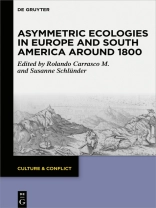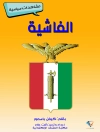This volume proposes new ways of understanding the historical semantics of the relationship between humans and nature in South America in the eighteenth and early nineteenth centuries. The authors in this volume use the notion of asymmetry to discuss the representations of and forms of knowledge about nature circulating in, and about, colonial and postcolonial South America. They argue that the production of knowledge about the American natural space widened the power gap between the Europeans colonizers and the local population. This gap, therefore, rests on what we call ‘asymmetric ecologies’: Eurocentric epistemic orders excluded forms of indigenous, mestizo, and Creole knowledge about nature. By looking at literary as well as non-literary sources, such as natural histories, travel narratives, encyclopaedias or medical writing, the essays in this volume trace the origins of new theoretical paradigms (ecocriticism, biopolitics, transarea studies, etc.), and examine the regional cultural, identity, and epistemic conflicts that undercut the Eurocentric narrative of enlightened modernity.
Sobre o autor
Susanne Schlünder and
Rolando Carrasco, Osnabrück University, Germany.












